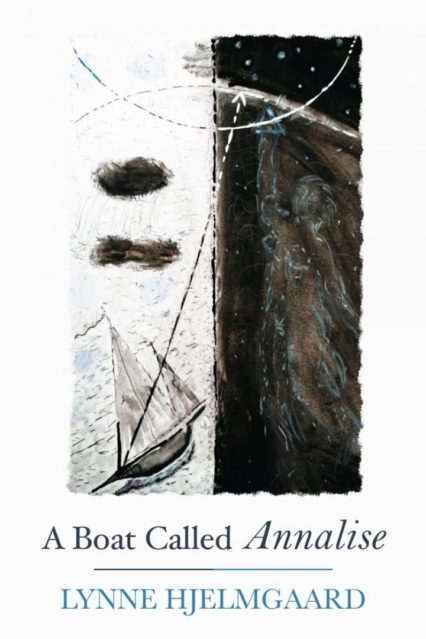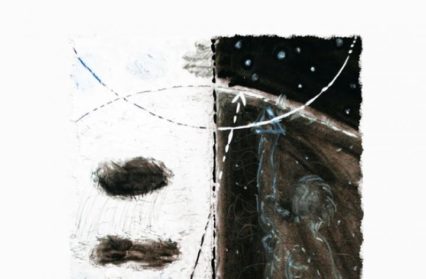A Boat Called Annalise is Lynne Hjelmgaard’s third, and most recent, collection of poetry. The first, Manhattan Sonnets, was published in 2003 and the second, The Ring, was published in 2011. What we’ve come to learn about Hjelmgaard through her work and poetic voice – through the first two collections – is that she has the ability and poise to alter the trajectory and composition of her work very smoothly and brilliantly without the work coming across as clumsy or, even, rushed. Take Manhattan Sonnets, for example. This was Hjelmgaard’s debut collection and was as poetic as the title suggests. Meter, rhyme, rhythm, verse and structure all played a vital part in the collection’s engine, leaving the reader with their foot firmly on the gas pedal until the end. We came to learn very quickly that Hjelmgaard was a poet of burgeoning magnitude, a poetic voice surreptitiously wrapped under a somewhat unassuming forefront.
 Then, The Ring appeared in 2011. Throughout her second collection, Hjelmgaard embodied a young widow who was struggling to come to terms with her husband’s death. The widow would move from various European cities, attempting to make a new life for herself while her husband’s death nagged at her constantly. It was pure poetic noir. The entire collection is structured more like a book, with an entire sequence of poetry busting out of every page. What made this collection so bold and strong was that Hjelmgaard had actually lost her husband in 2006, and signified a new direction for her as both a poet and a person. It was a brave decision to employ a protagonist very similar to herself. Very brave and very poignant. It was obvious that Hjelmgaard exorcised some demons and cleansed the sadness away with The Ring, giving the reader a startling account of what a recently-widowed woman goes through in order to move on.
Then, The Ring appeared in 2011. Throughout her second collection, Hjelmgaard embodied a young widow who was struggling to come to terms with her husband’s death. The widow would move from various European cities, attempting to make a new life for herself while her husband’s death nagged at her constantly. It was pure poetic noir. The entire collection is structured more like a book, with an entire sequence of poetry busting out of every page. What made this collection so bold and strong was that Hjelmgaard had actually lost her husband in 2006, and signified a new direction for her as both a poet and a person. It was a brave decision to employ a protagonist very similar to herself. Very brave and very poignant. It was obvious that Hjelmgaard exorcised some demons and cleansed the sadness away with The Ring, giving the reader a startling account of what a recently-widowed woman goes through in order to move on.
A Boat Called Annalise is a much more profound work than Hjelmgaard’s previously mentioned. Taking inspiration from a journey she took by boat, across the Atlantic to the Caribbean and Europe, with her late husband, the collection is both visually stunning and extremely distressing at the same time. Cleverly, the collection is split into four sections: I – That Feeling of Boat (which describes the beginning of the journey), II – On Shore (unsurprisingly describes the couple landing on shore and the people/things they see), III – Elsewhere (details some aspects of the journey home and life back on land), XI – A Brief Return to the Tropics (where we feel Hjelmgaard’s intense loss of her husband and concentrated sense of the journey’s many metaphors).
Hjelmgaard’s style here is one of a conversation between her and us, the readers. There is nothing fluffy, nothing pretentious and everything is written with meaning and reason. There is a saying that goes something like, a bad experience is a good reason to write, and here we see that first-hand. We see a poet who has experienced her closest passing away, and she has used that experience to produce a mature, confident and alluring work which, arguably, is her strongest to date.
I – That Feeling of Boat, ends with the poem ‘Through Binoculars I See a Turquoise Harbour’. This poem includes two stanzas which perfectly encapsulate the freedom and passionate longing for tabula rasa which is patent in this section:
I know that smell of tangy-flavoured soil
and the mongoose mud path
straight up to the top hills, fresher and
higher than those with whining sheep
looking down on
sails and sand and coral heads.Jumping out at me –
the more bluer than blue –
with white caps foaming
the whole way across
to Soper’s Hole.
II – On Shore, is an entertaining and visually compelling account of Hjelmgaard and her late husband’s time at shore, anchored to new beginnings and new sights. ‘Island Gossip’ is perhaps the strongest poem here, as it details all the rumours, half-truths and (maybe) truths that is encountered while Hjelmgaard is exploring the island they’re moored at. Instantly relatable to settling into a new neighbourhood, city or even country, the reader is allowed to fabricate images of the people we are told about, such as the workers who haven’t got a raise, the woman who committed suicide, the hermit or the man who is into wife-swapping.
However, it is ‘Leaving Port’ which remains with you for a long time after. Longing, anxiety, motivation and even despair are summed up in the stanzas of:
She fills us with newness,
we give away our oldWe need the music of wind and water,
the horizon our home.One hand for strength, the other for light.
The crowning glory of the collection rests in III – Elsewhere, and, unsurprisingly, it’s the title poem. The third section can be read as a tribute to Hjelmgaard’s late husband and also can be read as a sign of life fusing back together and progressing, healing like a wound. ‘A Boat Called Annalise’ tells us all we need to know here, totalled in the first two stanzas:
Two people together for so long can be rekindled at sea
and it changes me – (if alone one would be searching for a mate,
if one had a mate one would be worrying about being alone).
He is my crimson thread.I remember sky thickening and thinning
between gratifying moments
and wisps of purple cloud
going right through and down.
The collection ends of a note of completion, leaving the reader satisfied and entire, much like the collection itself. Wringed in metaphor, detail, meaning, and multi-layered, Hjelmgaard clandestinely compares life with her husband, and life alone, to the remnants and demise of the ship, Annalise.
In harbour, ships’ wakes and rolls
rocked us, sleepily secure,
water gurgled under her hull
like gentle, shaking bells.
We slept ‘til she opened our ears
to all natural sounds.Our ship made music.
Our ship was music.
A Boat Called Annalise is a triumphant collection of poetry, marking a new embarkation for Hjelmgaard as a poet. It’s a collection which can be read time and time again, and will especially be appreciated by readers looking for new beginnings, those experiencing life’s traumas and working through the healing process called grief.
Seren Books











